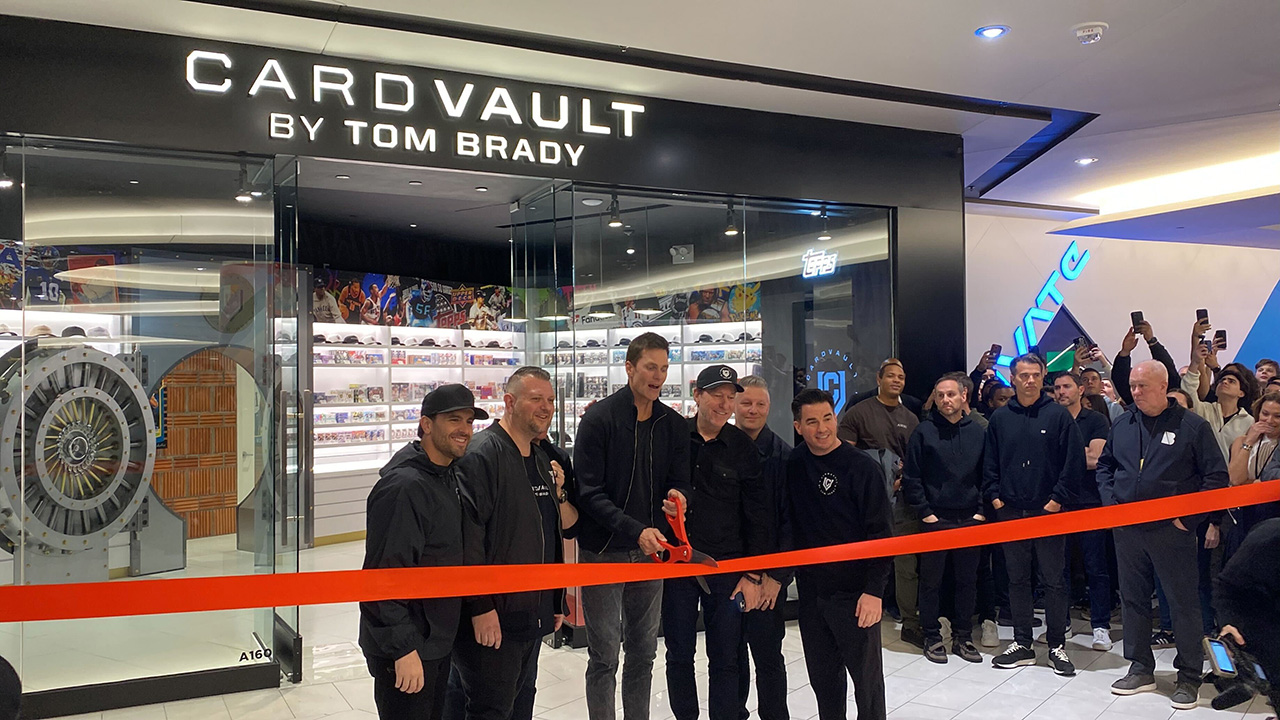How Europe views AI: Insights from our polls and expert reactions
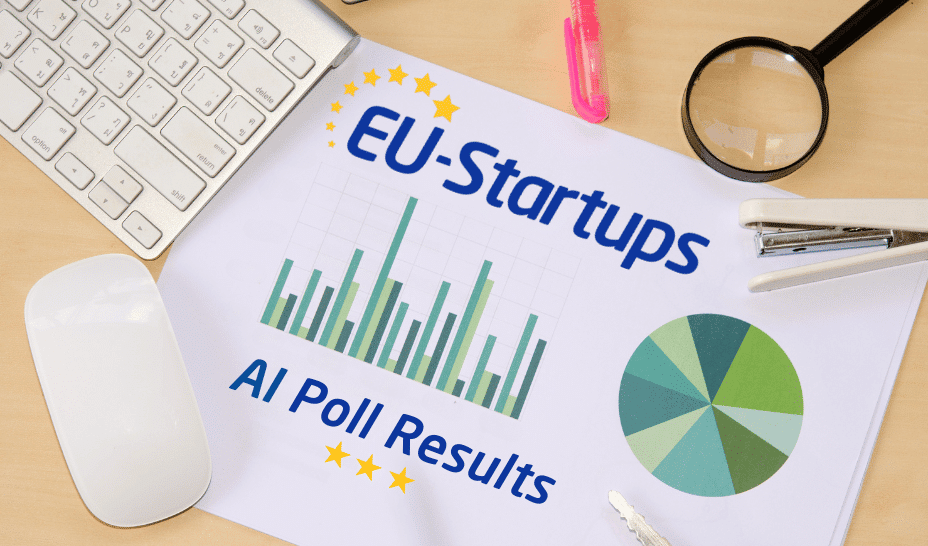
Artificial Intelligence is no longer a future concept – it’s here, and for many, it’s part of everyday life. To better understand how people are engaging with AI, EU-Startups recently ran three polls asking our readers about their habits, expectations, and concerns around generative AI tools like ChatGPT.
To contextualise the results, we spoke with two of the panelists from this year’s panel “AI Regulation: Opportunities & Challenges for AI Innovation in Europe” at the EU-Startups Summit.
Jennifer Woodard, Vice President of Artificial Intelligence at Logically and a leading voice in AI ethics and governance, brings both technical and policy expertise to the conversation.
Thomas Cuvelier, Partner at RTP Global, an early-stage VC firm backing AI-driven startups across Europe, offers an investor’s perspective on how AI is reshaping behaviour and business alike.
Daily AI: Normalised and necessary
Our first question was simple: How often do you use AI tools (ChatGPT, etc.) per month?
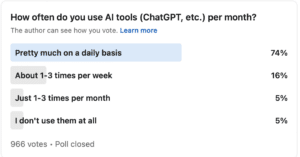
Out of 966 votes, the overwhelming majority of respondents are now engaging with AI tools on a near-daily basis, a finding that underscores the rapid integration of these technologies into personal and professional workflows.
“These results are not surprising,” said Woodard, Vice President of Artificial Intelligence at Logically. “Adoption of GenAI tools like ChatGPT is at an all-time high globally, and the statistics from your poll show just how useful people are finding them. If we think back to the launch of ChatGPT, the potential for this type of reliance was there from the very beginning, as the speed of adoption for this technology surpassed anything we had ever seen in tech history: 1 million users in just 5 days…that only happens when a product is truly making an impact in users’ lives.”
Cuvelier, Partner at RTP Global, added that this transformation has happened almost invisibly: “AI, and particularly ChatGPT, has silently but rapidly become ubiquitous in our lives – a daily companion in both professional and personal spheres. Its presence is so seamless it’s reshaping how we communicate, think, and create.”
One person even commented under the poll: “only once…. but 24/7-365“, highlighting the essential nature shaping AI usage in everyday life.
Creative AI: A divided audience
Next, we asked: Imagine 5 years from now AI would be able to create much more enjoyable music/movies than humans. Would you consume it?

Despite enthusiasm for AI in productivity tools, there’s a noticeable hesitation when it comes to embracing AI-generated creative works. Out of 236, over a third of respondents said they would consume AI-generated music or films, with nearly the same number rejecting the idea outright.
Woodard believes this hesitation reflects something deeper: “In contrast to the way people are developing a growing dependency on GenAI for everyday tasks, I think these results speak to perhaps an uneasiness with the role of AI in the more personal aspects of our lives. This could also be down to the fact that either we haven’t yet experienced anything truly exceptional in the artistic space (exceptional meaning a musical or a film masterpiece at the level of those created by humans).
“Or perhaps it could be related to the fact that, in our daily usage of these tools, we see their shortcomings in a very transparent way, and know there is always need for improvement (just try any AI image generator). But my bet would be on the idea of AI infringing on one of the last things that makes us truly human in the AI age: unique and authentic artistic expression.”
Cuvelier echoed the sentiment, posing a broader philosophical question: “The poll results also raise quiet unease – if AI becoming the first draft of everything, what becomes of human intuition, artistry, and originality?”
One comment put it succinctly: “humans relate most with human not with robots.”
With another going into more depth: “Music is transmitted through emotion, a human thing, it’s not for nothing we get goosebumps reaction when Andrea Bocelli hits us or Celine Dion to name a few but there are many, many artists that transmit a certain ‘je ne sais quoi’ which AI could never, and I don’t think it should.”
AI vs Google: A shifting landscape
Finally, we asked: Will ChatGPT replace Google within the next 3–4 years as the dominant platform for people to look for information and get answers?
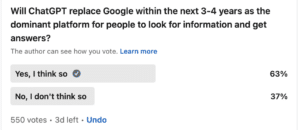
Out of 550 votes, the majority see a future where AI-powered assistants like ChatGPT overtake traditional search engines as the go-to interface for accessing information. This shift points to a broader transformation in user expectations: from lists of links to contextually relevant, conversational answers.
“The votes for ChatGPT replacing Google as the search leader in the next few years is telling,” said Woodard. “ChatGPT delivered not only relevance but a more natural user experience […] Even better, that relevance is contextual to you, to your interactions with the system and it improves upon each exchange you have with it.”
She also cautioned that the battle is far from over: “Google is developing really compelling GenAI tools themselves with Gemini. They are very motivated to win, and not just at search […] Who will come out on top remains to be seen, it’s really an arms race.”
Cuvelier observed that this transition is already happening: “While it was intially confined to tech circles, [AI] now powers conversations and thoughts in classrooms, boardrooms, and at home – an invisible colleague, tutor, and companion that is quickly replacing Google as a method of query.”
The comment section for this polls was alive with discussion, with some pointing out the impact on SEO results and others the effect LLMs will have in general, but there was one comment that caught the eye of the EU-Startups team: “The dilemma lies in whether Google prioritises enhancing its search functionality (degraded in years) or prefers to focus on charging advertisers. Ultimately, the decision rests with Google.”
Final thoughts
These poll results, expert insights, and comments highlight a complex relationship with AI: enthusiastic adoption for productivity, scepticism in emotional or artistic domains, and a strong belief in AI’s potential to reshape the way we access information.
As generative AI continues to evolve, the European tech ecosystem – from startups to investors, and also policymakers – must remain attuned not only to the technological possibilities but also to the social and ethical questions they raise.
The post How Europe views AI: Insights from our polls and expert reactions appeared first on EU-Startups.
What's Your Reaction?
 Like
0
Like
0
 Dislike
0
Dislike
0
 Love
0
Love
0
 Funny
0
Funny
0
 Angry
0
Angry
0
 Sad
0
Sad
0
 Wow
0
Wow
0





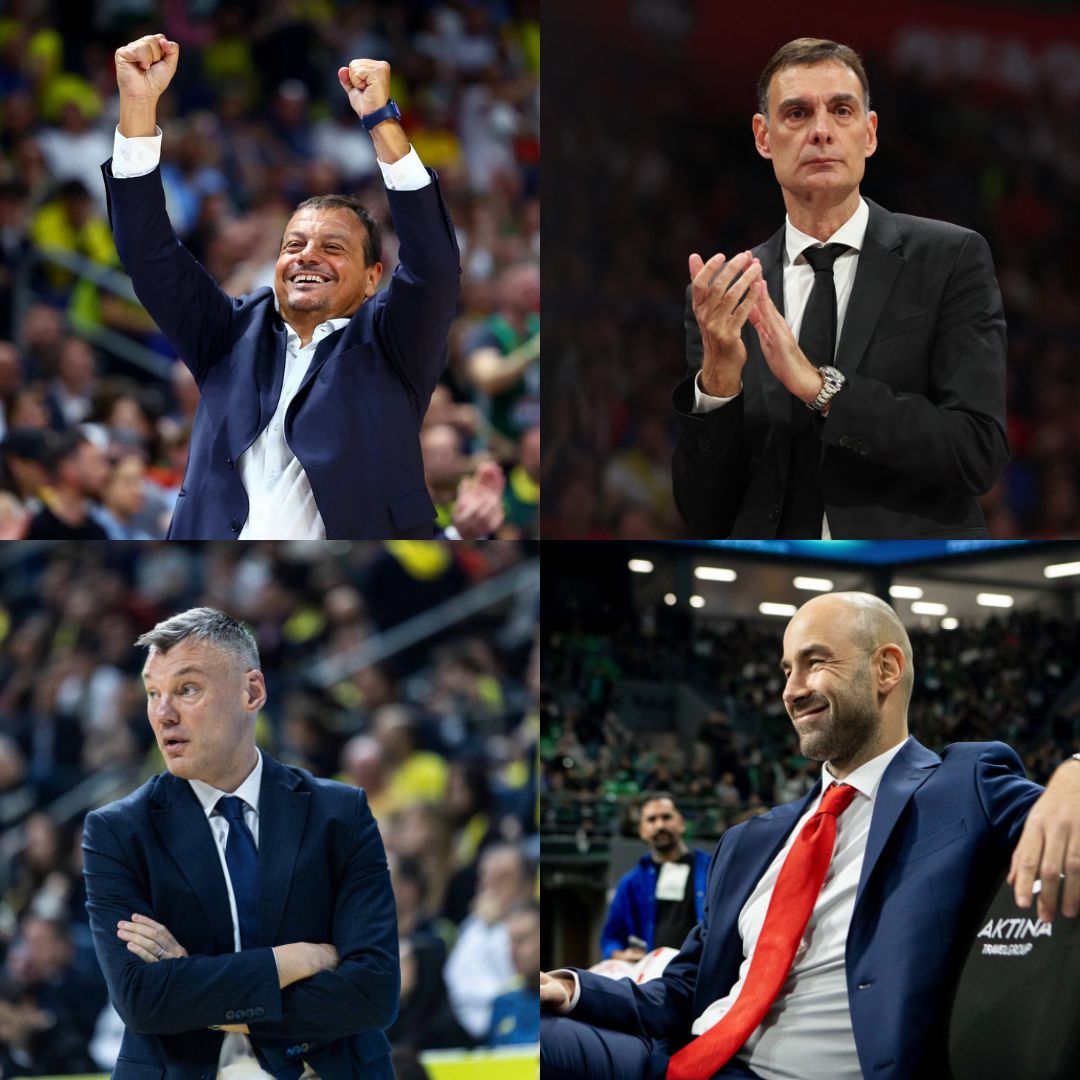



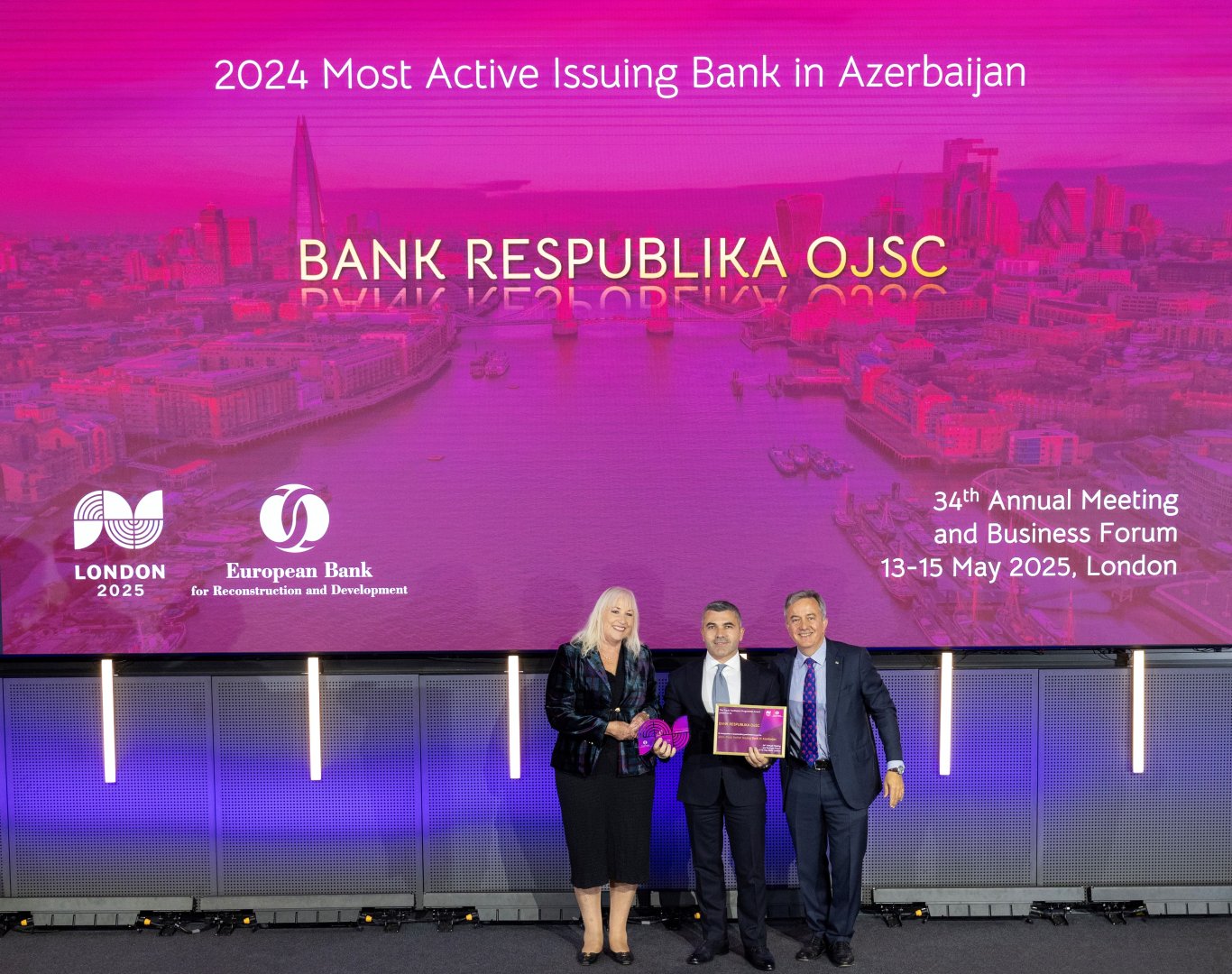


































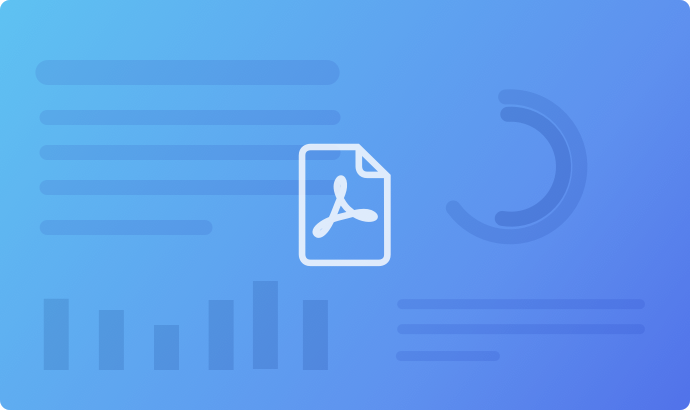



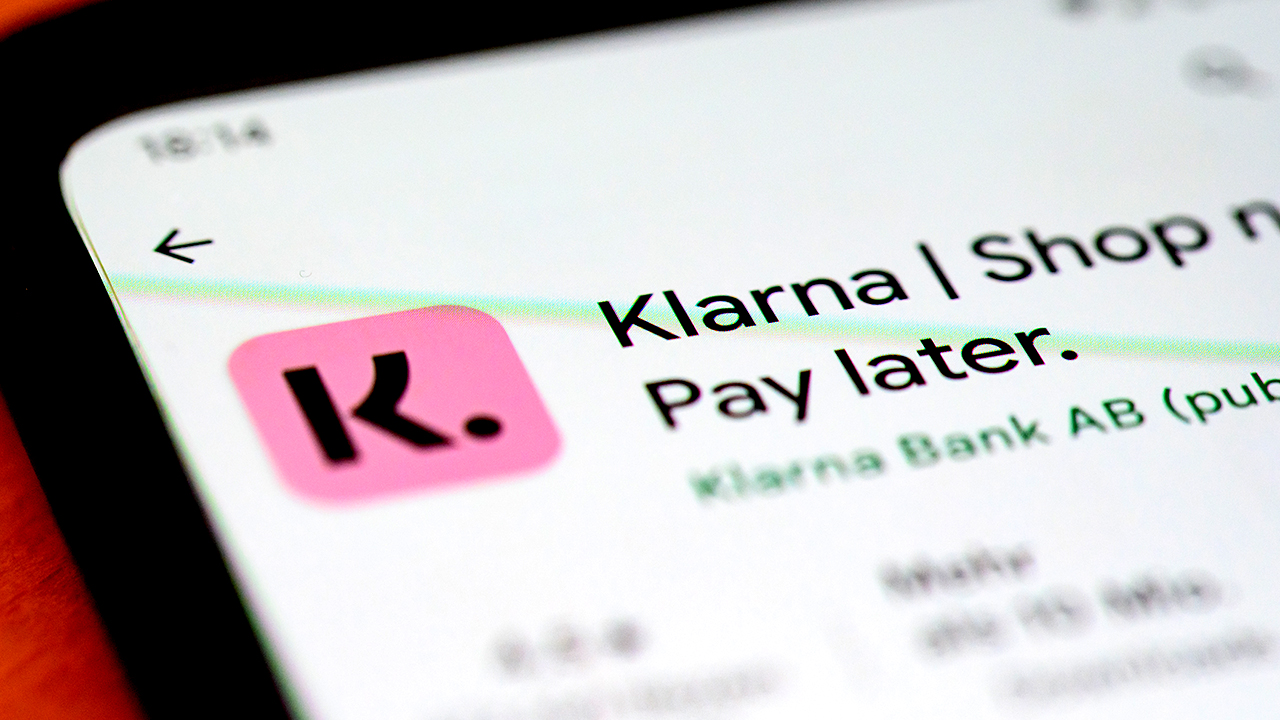
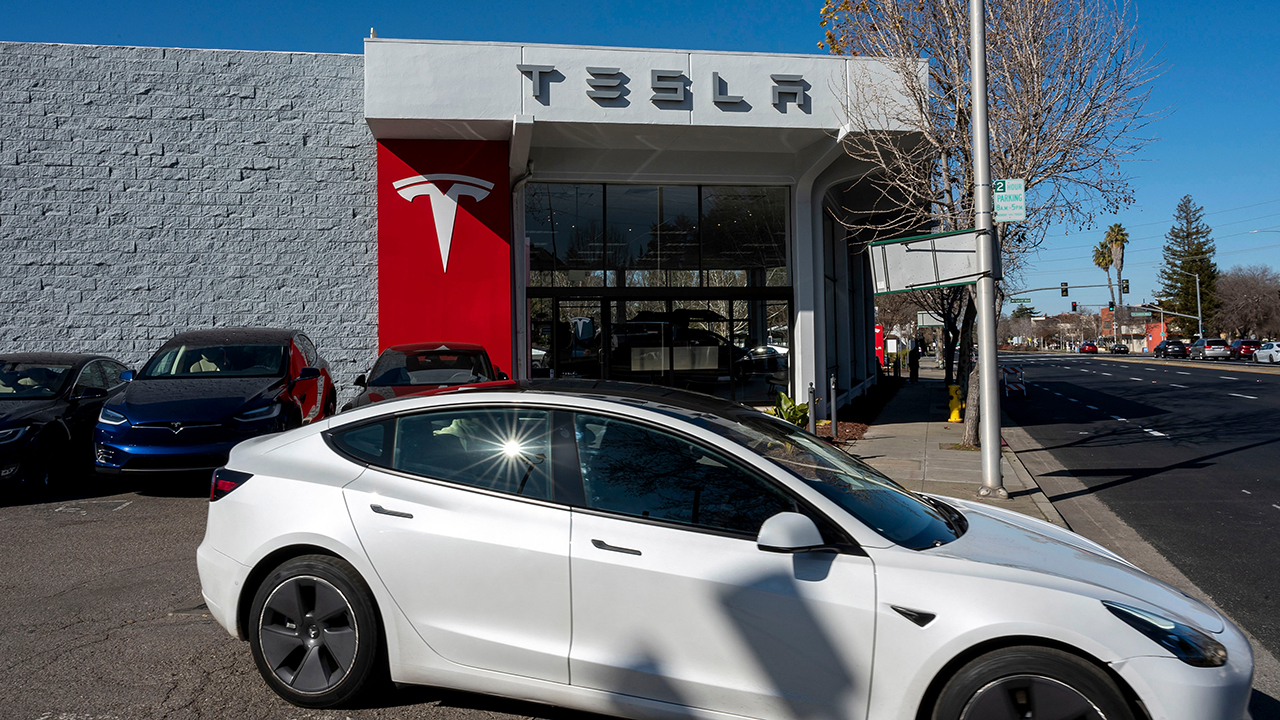


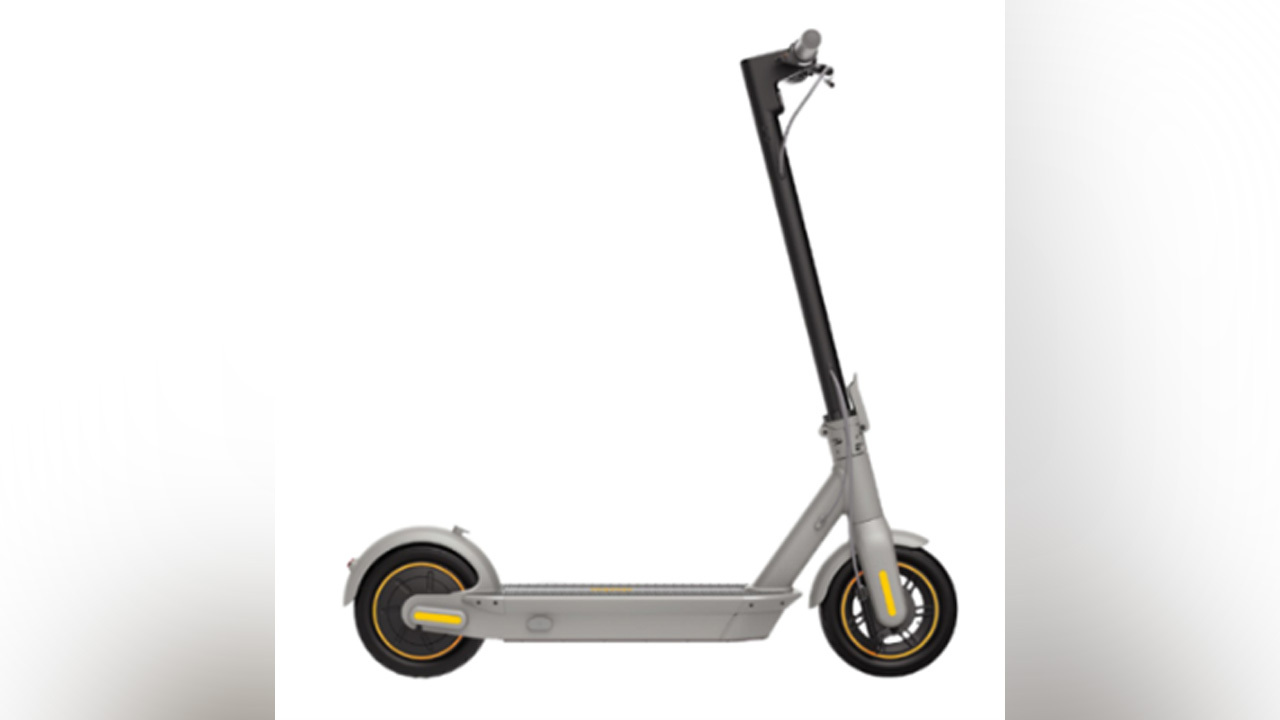


.png?Expires=1838763821&Key-Pair-Id=K2ZIVPTIP2VGHC&Signature=IO0~CT3pU-TcxGc~yoZSmoQx23MZVuK-~4jSii~NKEblRmyO3el7NXPu~Rh1o23voASg7hlcHLw4kvQuDK1jssEhcjoNBBvEpZ~GGOAU6yosBhpHpeF179F~h7i6VxmsBNh9gtTutkoqY73O2YCFey~IAqSzKbBqETP1kP9cAg1916Z1YkJJs-5MliMrkZ5d7-mWGLbpHp2wGj2VlMph8XzYlL4~y1O7fB~JdIS~Rs4RMRs2x0WT1qUIpHAsf3GdwtOyAmKFSpIg8xCyNGZZ5h~13nXlmpd7uPvW8tBfttpG9pFTqcway-uch5WyfHOEfi7UlJCOWrr6fCYY5PMgSg__)





